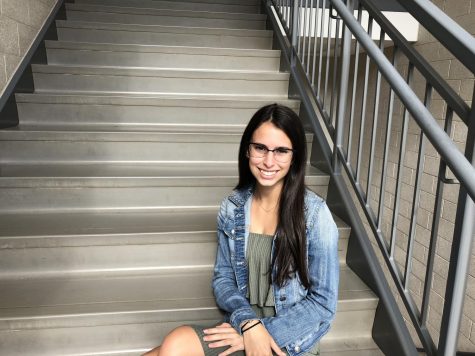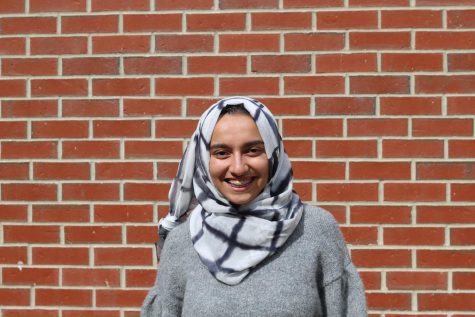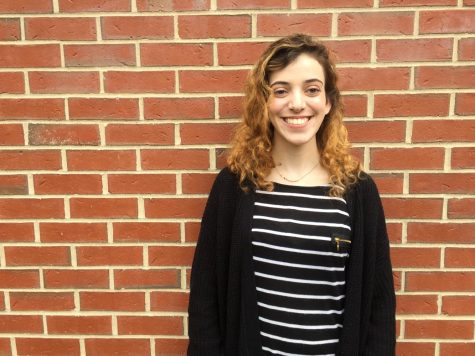Poetry Out Loud finalists perform in schoolwide contest
Anita Nyberg, Mariam Ibrahimi, and Anna Silver
February 13, 2018
Eight contestants from all grades participated in the Algonquin Poetry Out Loud finals on Tuesday January 30. Out of the eight competitors, sophomore Joe Zhang was selected as the winner to move on to the Massachusetts state finals on March 11, with the poems “Snow Day” by Billy Collins and In the “Basement of the Goodwill Store” by Ted Kooser.
Poetry Out Loud is a yearly event at Algonquin and a national competition where students compete by memorizing poems and reciting them in front of an audience. Contestants add character to their poems by using different inflections to emphasize certain lines to relay meaning and capture the audience’s attention.
“I had a lot of fun. I always look forward to [Poetry Out Loud], so it’s just a good time,” junior Jenna Khreim, the second place finisher said. “I love being involved and it kind of helps to show that I have a lot of friends that think poetry is boring because they automatically think of old English and Shakespeare, when really there are poems these days that are so modern, funny, emotional, and things you can relate to.”
Out of the hundreds of students that competed at the classroom level, and then the school semi finals, the eight best performers moved on to the school finals. These representatives from all grades included freshmen Edna Kinyanjui, Sarah Saeed, and Miranda Slingluff, sophomores Joe Zhang and Grant Perkins, junior Jenna Khreim, and seniors Kara Hadden and Taylor Murphy.
“I thought it was really interesting to see how talented and interested a lot of the kids were,” junior Judith Schuurman said. “I usually don’t spend that much time with poetry, so it was interesting to hear ones from very different ends of the spectrum.”
Poetry Out Loud contestants were scored on how well they performed their poems by a panel of faculty judges. These judges included drama teacher Maura Morrison, biology teachers Meghan Dore and Brian Kelly, English teacher Lauren Frantz, and librarian Kimberly Honey, alongside scorekeeper and English teacher Lindsay Coppens, and accuracy judge and English teacher Emily Philbin.
“Before the day, we were given all of the poems so that we could read them and have a basic understanding of what the poems were about,” Honey said. “So when we judged, we could see if the students understood the poem. That’s part of the judging, the interpretation of the poem but to also make sure it matches the integrity of the poem.”
Participants picked their poems from a vast database provided by Poetry Out Loud, citing many different reasons for why they chose them. Some picked them because they were easy to memorize and recite, while some students picked poems that stood out to them on a more personal level.
“[The poems I selected] were really easy to understand,” Zhang said. “Last year I chose a really esoteric poem, and nobody got it, so this year I wanted to avoid that and pick easy to understand poems.”
“One of my poems was “Famous” by Naomi Shihab Nye, and I read it in the second round,” Khreim said. “I had a connection with that because the poem basically spoke about to not push yourself into a hole where you think that you need to do something life changing to have an impact on the world and it just basically sends a message that the narrator just wants to do something simple like being known for smiling back at people and I always have this little motto of mine that I always want to be that one person who’s known to help people smile so I’m always smiling back at everyone and I just always want to help people get through their rough days and all that.”
Zhang is very satisfied with his performance, and is already preparing for the state competition. He put many hours of work into perfecting his performances, and plans to do the same again.
“I recited my second poem like forty times yesterday with my dad because I couldn’t memorize certain lines,” Zhang said. “I just try to channel inner emotions when I [perform].”













